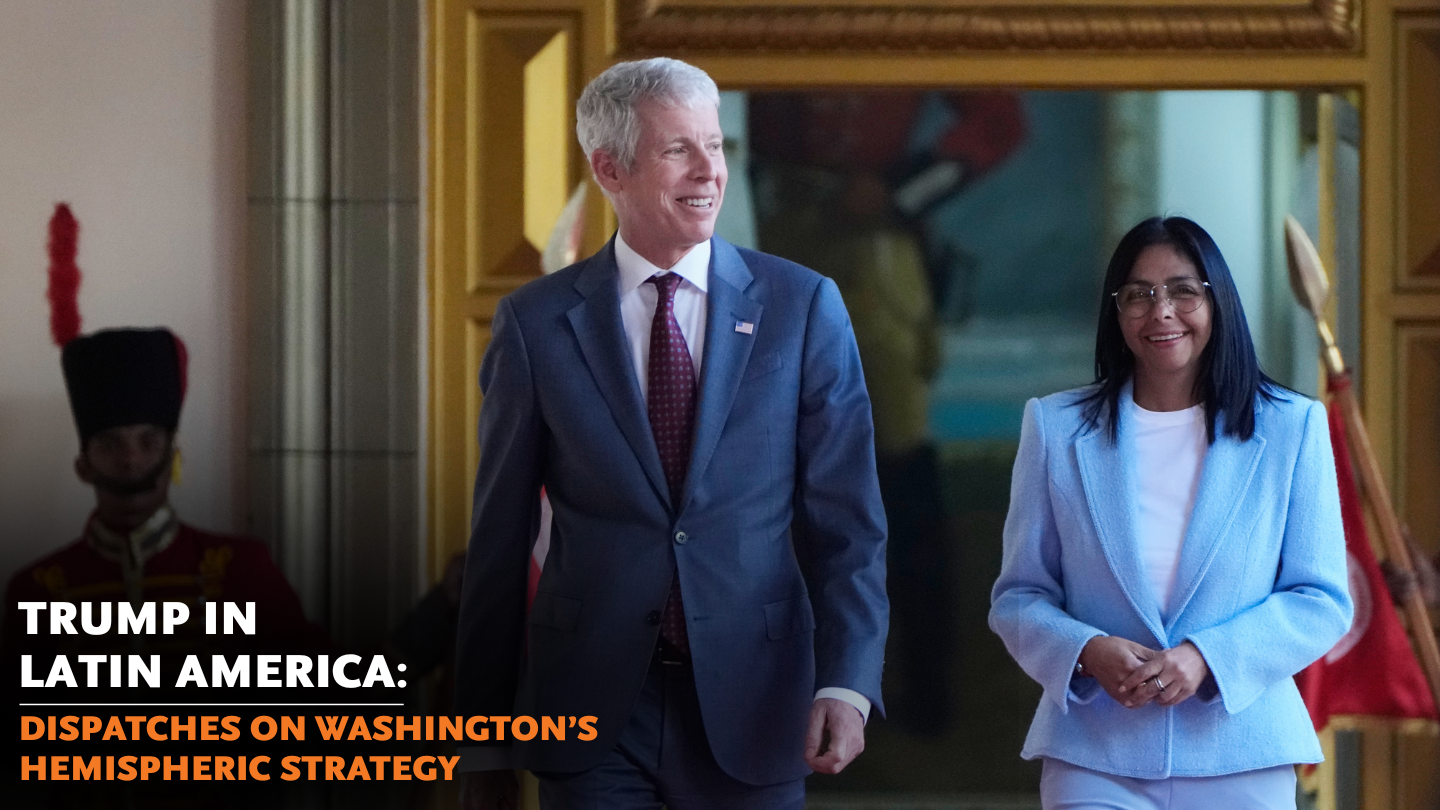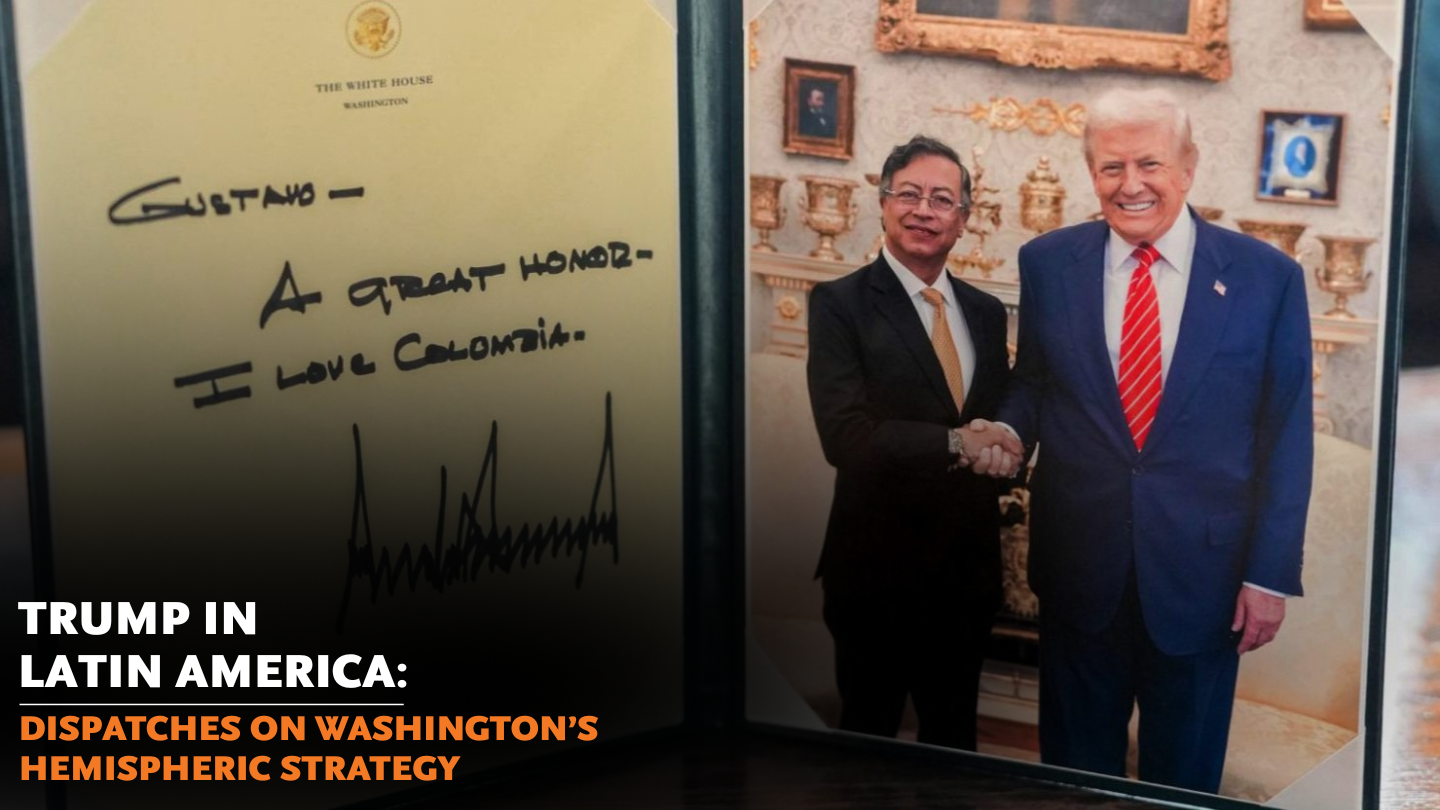Great Expectations for Obama
Great Expectations for Obama
With a new administration taking the reins, pundits, politicians, and the press offer up ideas for how Barack Obama should handle policy toward Latin America. Top issues include drug violence in Mexico, Cuba relations, and pending trade deals.
As the world looks to Washington for Barack Obama’s inauguration, advice floods in for the next Oval Office occupant. In recent years, experts lined up to count the ways Washington has neglected the Americas. With a new administration taking the reins on Tuesday, pundits, politicians, and the press are offering up their ideas for how Obama should handle hemispheric ties.
A January 12 meeting between Mexican President Felipe Calderón and the president-elect sparked a number of recommendations. Denise Dresser, a columnist for the Mexican newspaper Reforma, warns that that $400 million Merida Initiative will not be sufficient to stem the violent drug war nourished by U.S. hunger for illegal drugs. She suggests that Washington “must demand accountability for the aid it offers and insist that, if Mexico wants a helping hand, it will have to aggressively clean up its own house.” A Dallas Morning News editorial raises concerns about the fact that, after the meeting with Calderón, Obama continued to signal a desire to make changes to the North American Free Trade Agreement: “Trade with Mexico and Canada means jobs. Given the current economy, we need to retain all of them we can.”
But suggestions about what should make up Obama’s Americas policy extend well past U.S. neighbors. Latin Business Chronicle lays out ten goals for the administration, with priorities including stronger relations with Brazil, more attention on Central America and Haiti, and a tough stance on Venezuela. World Politics Review urges the Obama administration to follow “a policy of reconciliation and engagement [that] would help defuse historical resentments.”
Shortly after the inauguration, Colombian Defense Minister Juan Manuel Santos will pay Obama a visit and make the case for extending Plan Colombia funding; he says in a Los Angeles Times interview that the aid represents a “minimal cost compared to Iraq.” The Obama administration should, by April’s Summit of the Americas in Trinidad and Tobago, be able to announce approval pending trade deals with Colombia as well as with Panama, says former Congressman James Bacchus in an AS/COA Online interview.
An IPS Inter-Press Service article reports on calls for Obama to start the process of normalizing U.S.-Cuban relations. At the very least, lifting travel and remittance bans imposed on Cuban relatives by the Bush administration would help “repair the U.S. international image,” writes Vancouver Sun’s Jonathan Manthorpe, who suggest overturning the embargo would likely be an onerous task for Obama in the short term.
Obama has called for “a new page, a new chapter” in U.S.-Latin American relations. “We will return to a policy of vigorous engagement throughout Latin America,” said Hillary Clinton during her confirmation hearings for secretary of state.
But issues ranging from financial turmoil to conflict in the Middle East will likely draw attention away from immediate attention to hemispheric matters. Calderón told the Washington Post that Obama warned him about "obstacles and difficulties in the [U.S.] political arena" to immigration reform. The decision by Bill Richardson, the bilingual governor from New Mexico, to withdraw his name from the running for commerce secretary resulted in the lack of a natural U.S.-Latin American mediator, warns Miami Herald columnist Andres Oppenheimer. A Stratfor analysis says that, while the security situation in Mexico will stand as a major problem for the administration, “with the other challenges, including a resurgent Russia and chaotic Pakistan, facing the Obama presidency, significant shifts in Mexico policy do not seem likely in the near future.”
Building the Hemispheric Growth Agenda: A New Framework for Policy, a report published by the AS/COA Trade Advisory Group, details ways to reignite trade and integration with Latin America, even during troubled economic times. The fall issue of Americas Quarterly featured 31 essays from the hemisphere's political, social, and economic leaders on the future of U.S. policy under a new administration.








